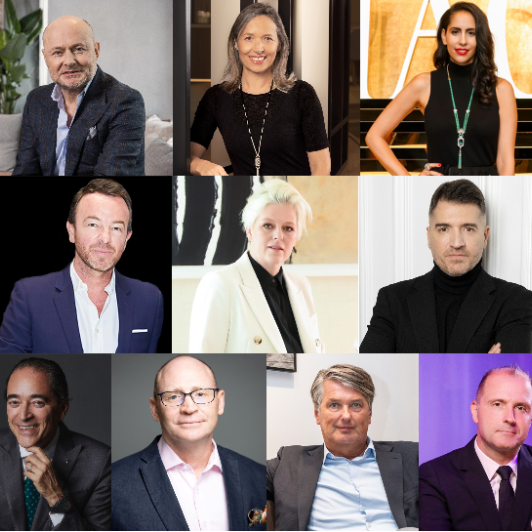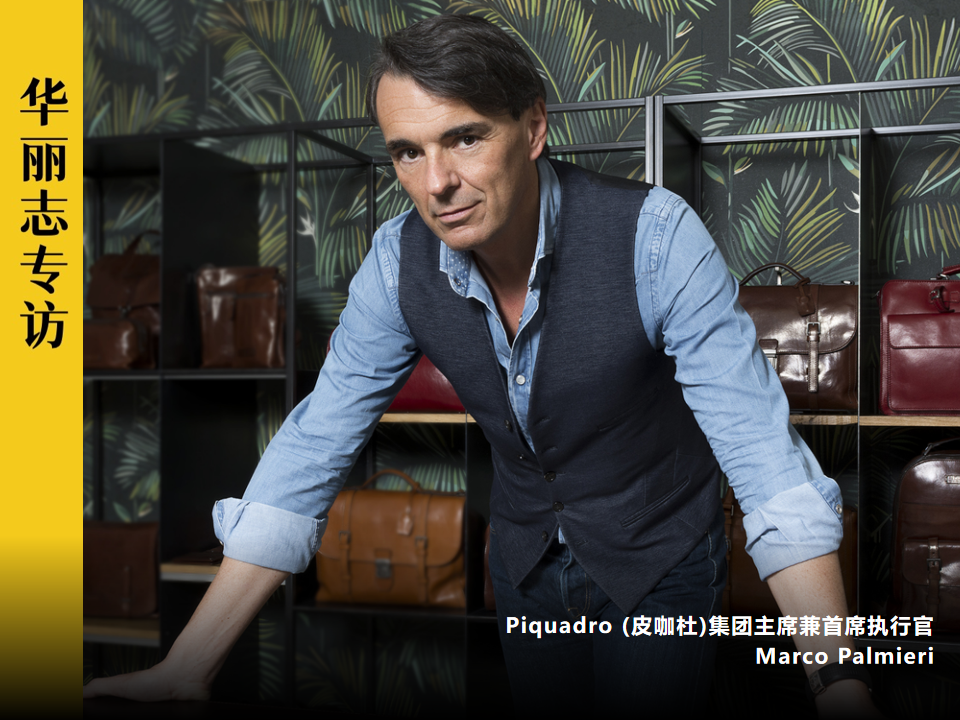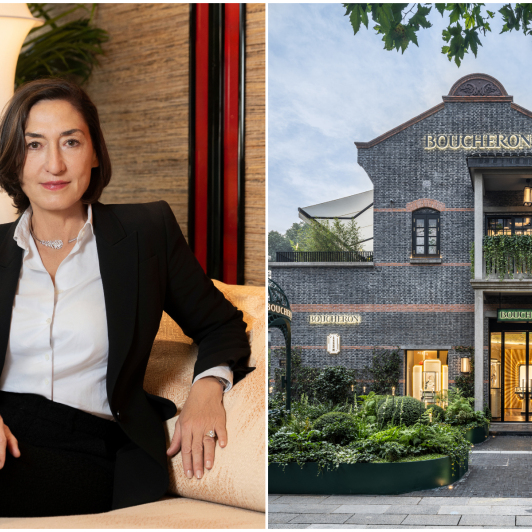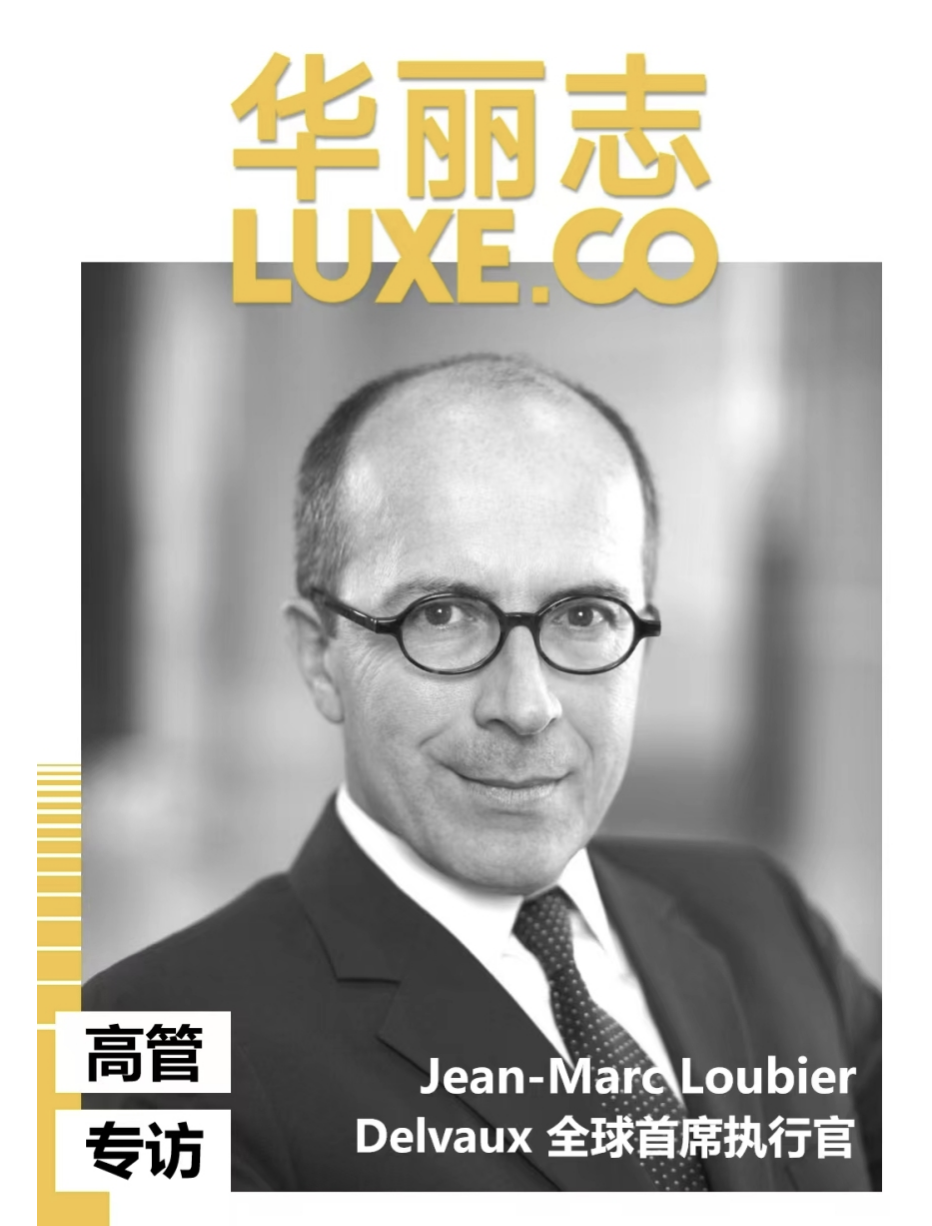
“Delvaux will continue to grow, with endless possibilities. We hope it will have its own way of growing, rather than imitating other brands,” described Jean-Marc Loubier, the Global CEO of the luxurious Belgian leather goods brand, Delvaux, in an exclusive interview with Luxe.CO.
For Loubier personally, his role has long surpassed that of just a brand’s CEO; he is a practical visionary with a dream to revive the world’s first luxury leather goods family. In this in-depth conversation with Luxe.CO, he shares his insights with the industry.
At the beginning of the 21st century, during a journey to Tokyo, Japan, Loubier was captivated by the silhouette of Delvaux’s Brillant handbag, leading him to discover this brand with a profound history and outstanding craftsmanship. Founded in 1829 in Belgium, Delvaux predates the country’s independence by a year.
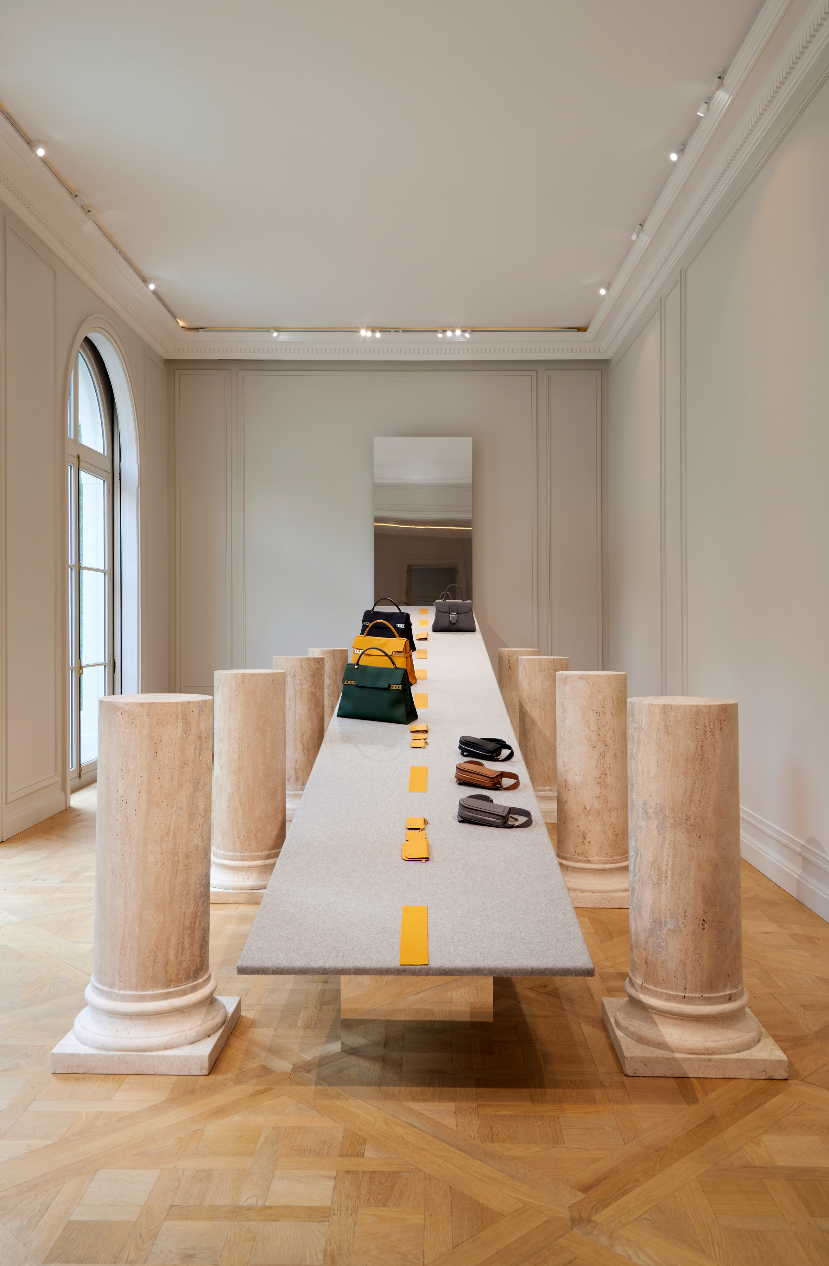
Delvaux 2023 Autumn-Winter Collection handbags
During that time, Loubier served as the Executive Vice President of Louis Vuitton. He played a significant role in helping the brand establish its first store in China in 1992 and launch its first official website in 1995.
In 2011, he personally led the majority acquisition of Delvaux and assumed the role of CEO, leading the brand’s revival and global expansion over the next nine years. Since 2010, Delvaux has expanded from three stores in Belgium to 60 boutiques worldwide, with international sales accounting for 90% of the total revenue, up from 3%.
In July 2021, the Swiss luxury goods group Richemont announced the acquisition of Delvaux’s entire share capital, and two months later, the group appointed Loubier to lead the brand once again.
This year marks the tenth anniversary of Delvaux’s entry into China, and recently, the brand held an immersive interactive art exhibition in Beijing to pay tribute to Magritte’s 125th birthday.

Delvaux’s immersive interactive art exhibition in tribute to Magritte’s 125th anniversary recently held at Beijing SKP.
Rediscovering a Luxury Brand from Belgium
“To understand what supports Delvaux, one must first understand its birthplace – Belgium,” Loubier told Luxe.CO.
Situated in the northwest of Europe, Belgium is considered a crossroad between the United Kingdom, the Netherlands, Germany, France, and Luxembourg. In 1830, the Kingdom of Belgium officially declared its independence as a sovereign nation, previously ruled by its neighboring countries.
The country’s diverse cultural atmosphere is shaped by its historical past, evident even in its official languages. As one of Europe’s smallest and most densely populated countries, Belgium has three official languages: Dutch, French, and German.
Today, when people mention Belgium, they often discuss its delicious food and beverages, such as chocolate, beer, and waffles. When we search for Delvaux on social media, we frequently encounter expressions like “national treasure-level luxury brand.”
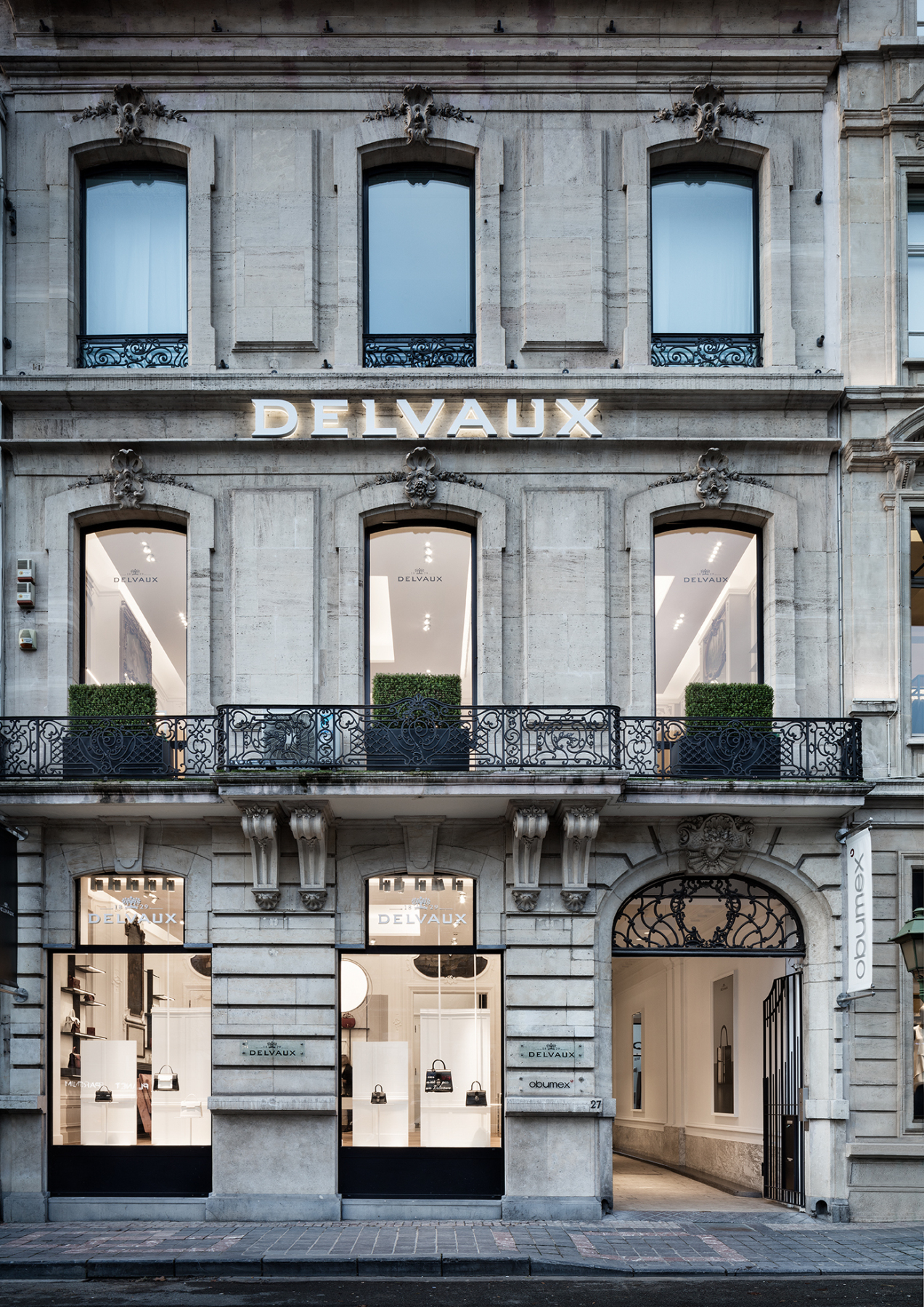
Delvaux flagship store, Le 27, located in Brussels, Belgium.
Interview Transcript:
Luxe.CO: As the only luxury brand from Belgium, what sets Delvaux apart from luxury brands originating from France and Italy? What is Delvaux’s unique charm?
Jean-Marc Loubier: Belgium has beautiful cities, ancient architecture, a pleasant living environment, and a creative population, all of which form the rich background of Delvaux.
In 2011, when I acquired Delvaux, it was facing challenges. However, we believed that with its rich cultural history and powerful energy, we could revitalize it.
Luxe.CO: What motivated you to decide to acquire this hidden treasure of a brand – Delvaux?
Jean-Marc Loubier: When evaluating an acquisition, you need to know what goals you can achieve and how much energy is required. I believe Delvaux has enormous development potential.
Firstly, at that time, the luxury industry had become quite standardized and commercialized. Secondly, Delvaux possesses three significant elements: it is the oldest brand in the luxury industry, it hails from Belgium with its unique culture and craftsmanship, and most importantly, it has its own soul.
Luxe.CO: On social media, people often describe Delvaux as understated. Do you consider it a low-key brand?
Jean-Marc Loubier: It is not a low-key brand; it is an internationally leading luxury brand.
Ten years ago, Delvaux was merely a name, far from being a brand. To grow into an internationally leading luxury brand, having exceptionally high product quality is a fundamental requirement. However, having quality alone does not make people yearn for it; we also need a visually expressive and captivating appearance. But things that capture attention are often short-lived, so we further enrich its depth of content.
We are planning the brand’s development in a very delicate and clear manner, which I don’t think can be considered low-key.
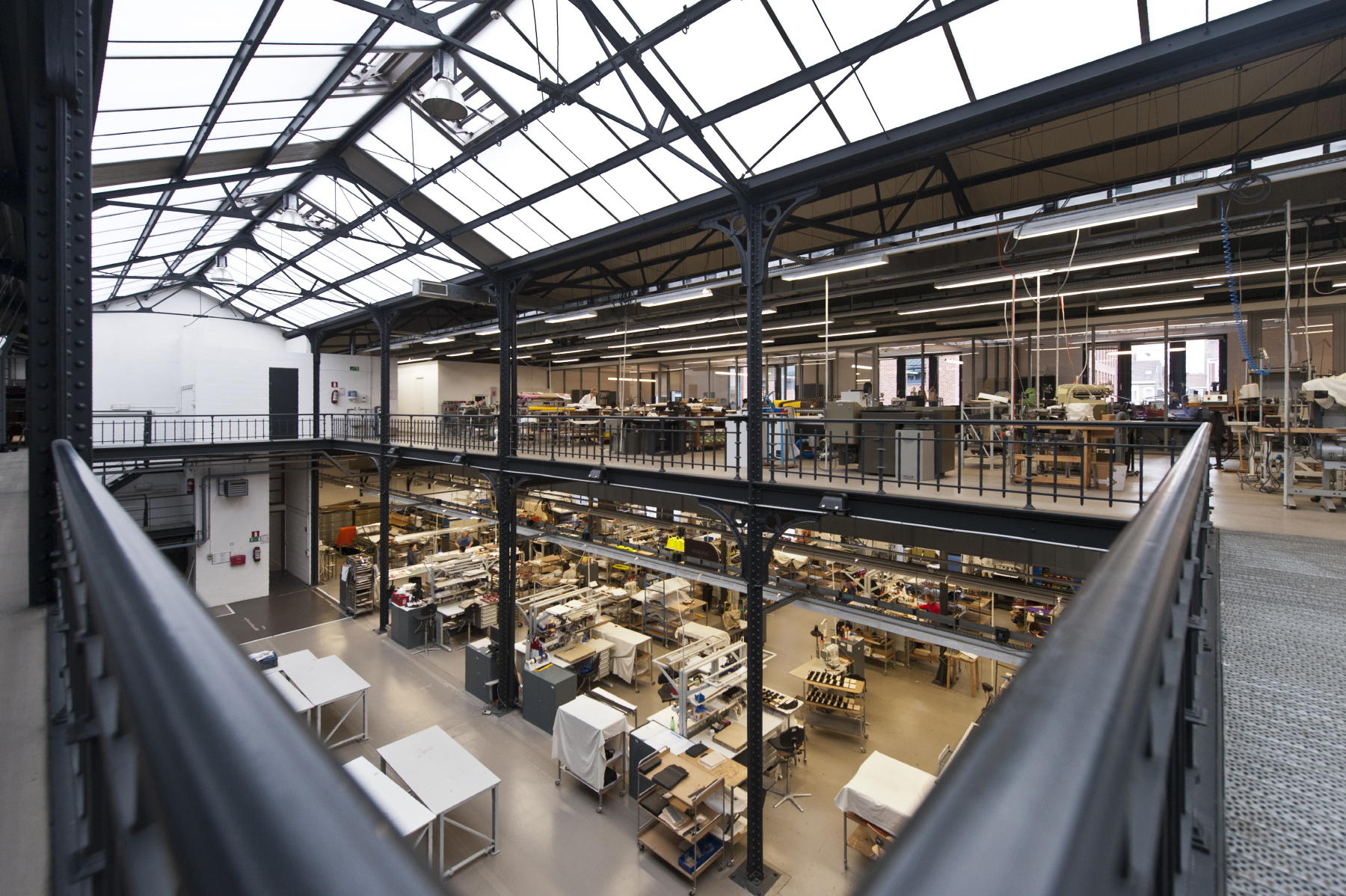
Delvaux’s leather workshop located in Brussels, Belgium.
Being an “Architect of Leather” in the Leather Goods Field
“Architect of Leather” is the positioning that Loubier mentioned in the interview for the Delvaux brand.
After gaining a deeper understanding of the brand, Loubier discovered that besides the Brillant handbag that initially caught his attention, Delvaux also has a rich historical archive. Since 1829, the brand has created more than 3,000 handbag designs, and each handbag’s name, appearance sketch, creation time, and location are recorded in the brand’s internal “Livre d’Or” (Golden Book).

In 2019, to celebrate the brand’s 190th anniversary, Delvaux established the Musée Delvaux brand museum at its headquarters in Brussels, where the “Livre d’Or” is displayed.
Currently, most of the brand’s iconic handbags were born between the 1950s and 1970s, such as Brillant (1958), Tempête (1967), Pin (1972), Cool Box (2018), So Cool (2020), and Lingot (2022, inspired by the brand’s archives from the 1970s).
However, unlike many contemporary leather goods brands, Delvaux doesn’t frequently introduce new handbag designs.
Interview Transcript:
Luxe.CO: What does an “it bag” mean for a leather goods brand, in your opinion?
Jean-Marc Loubier: “It bags” are challenging to sustain because they experience a period of popularity, slow down, and then eventually disappear.
Luxe.CO: Is it necessary for a leather goods brand to constantly come up with new designs and introduce new silhouettes of handbags?
Jean-Marc Loubier: That is the approach of fashion brands. We are not a fashion brand; we are designers, far beyond the realm of fashion. I refer to Delvaux as the “architect of leather.” Each of her creations is crafted with ingenuity and stands the test of time.
Luxe.CO: What do you hope people will remember about Delvaux when they mention the brand?
Jean-Marc Loubier: I hope people will first remember the name “Delvaux,” followed by the silhouettes of our handbags.
The handbag silhouette is crucial; if people don’t like it, they won’t bother to explore the brand name, just like my own experience of discovering Delvaux.
I also hope people will remember that we are pioneers in the field of handbags, so they take the time to understand our creativity and the ideas we want to convey.
Luxe.CO: In the future, will Delvaux explore other product categories and introduce entry-level products?
Jean-Marc Loubier: What we do has nothing to do with creating affordable prices; instead, we aim to make complex craftsmanship more approachable, which is entirely different.
We are committed to becoming an internationally leading brand beyond leather goods products. Therefore, the choices we make have a clear direction. For example, we will always introduce products that arouse people’s interest.
Delvaux positions itself in the luxury segment, and we intend to stay in that position. The key is to find touchpoints that emotionally connect with people, but that doesn’t mean we will lower prices.
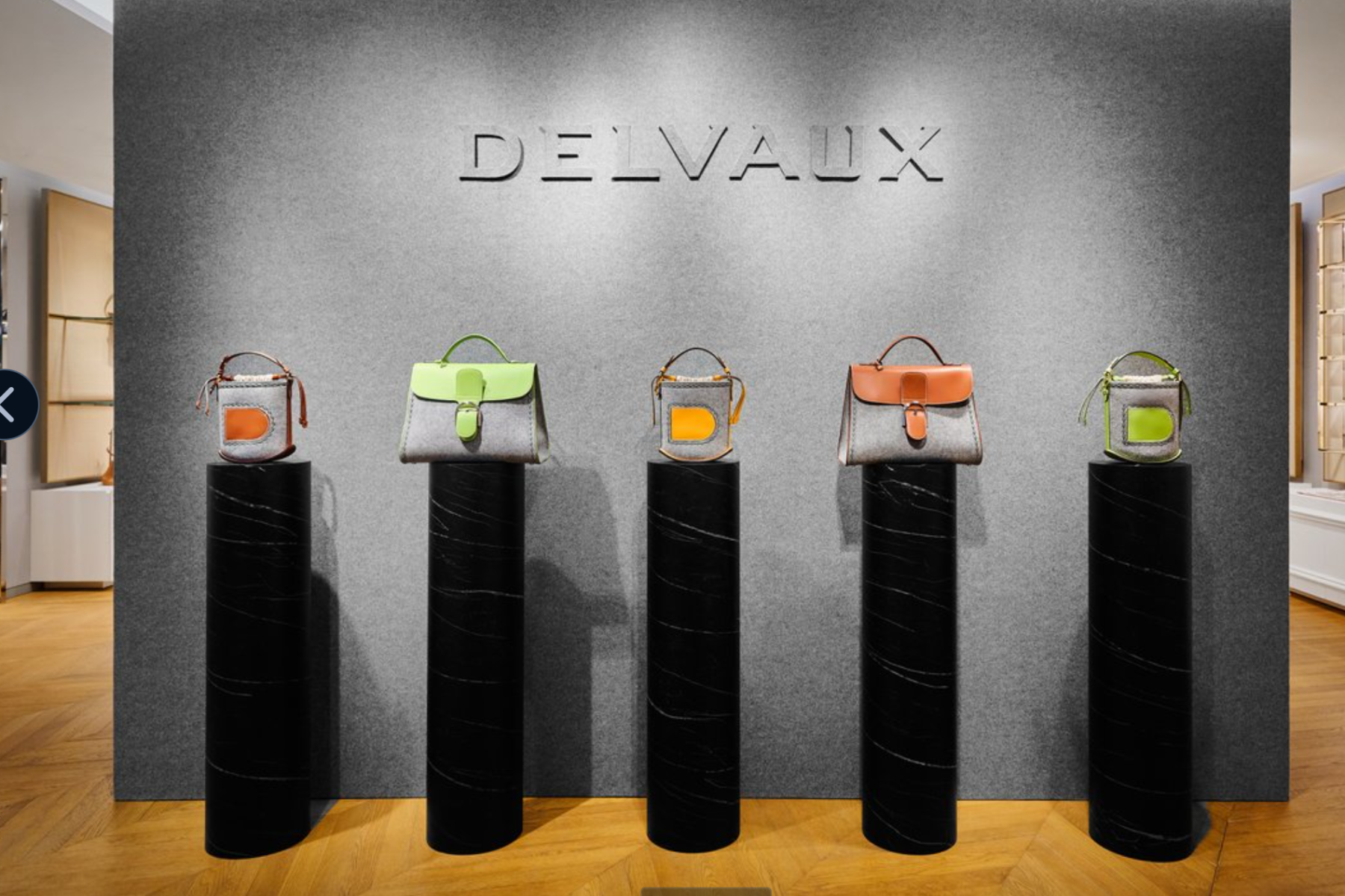
Delvaux 2023 Autumn-Winter Collection handbags
Delvaux in China
During the earnings conference call for the 2023 fiscal year (ending March 31, 2023) of the Richemont Group, CEO Jérôme Lambert stated, “Delvaux has successfully integrated into the group in its first full fiscal year after the acquisition, and during this fiscal year, Delvaux achieved very sharp growth.”
The financial report pointed out that Delvaux’s robust growth was mainly attributed to a series of investment activities, including the opening of a new boutique store in Chengdu, China.
Delvaux officially entered the Chinese market in 2013 by opening its first physical store in Beijing. Currently, the brand has a total of 13 boutique stores in mainland China, located in nine cities, including Beijing, Shanghai, Guangzhou, Shenzhen, Hangzhou, Chengdu, Chongqing, Nanjing, and Xi’an.
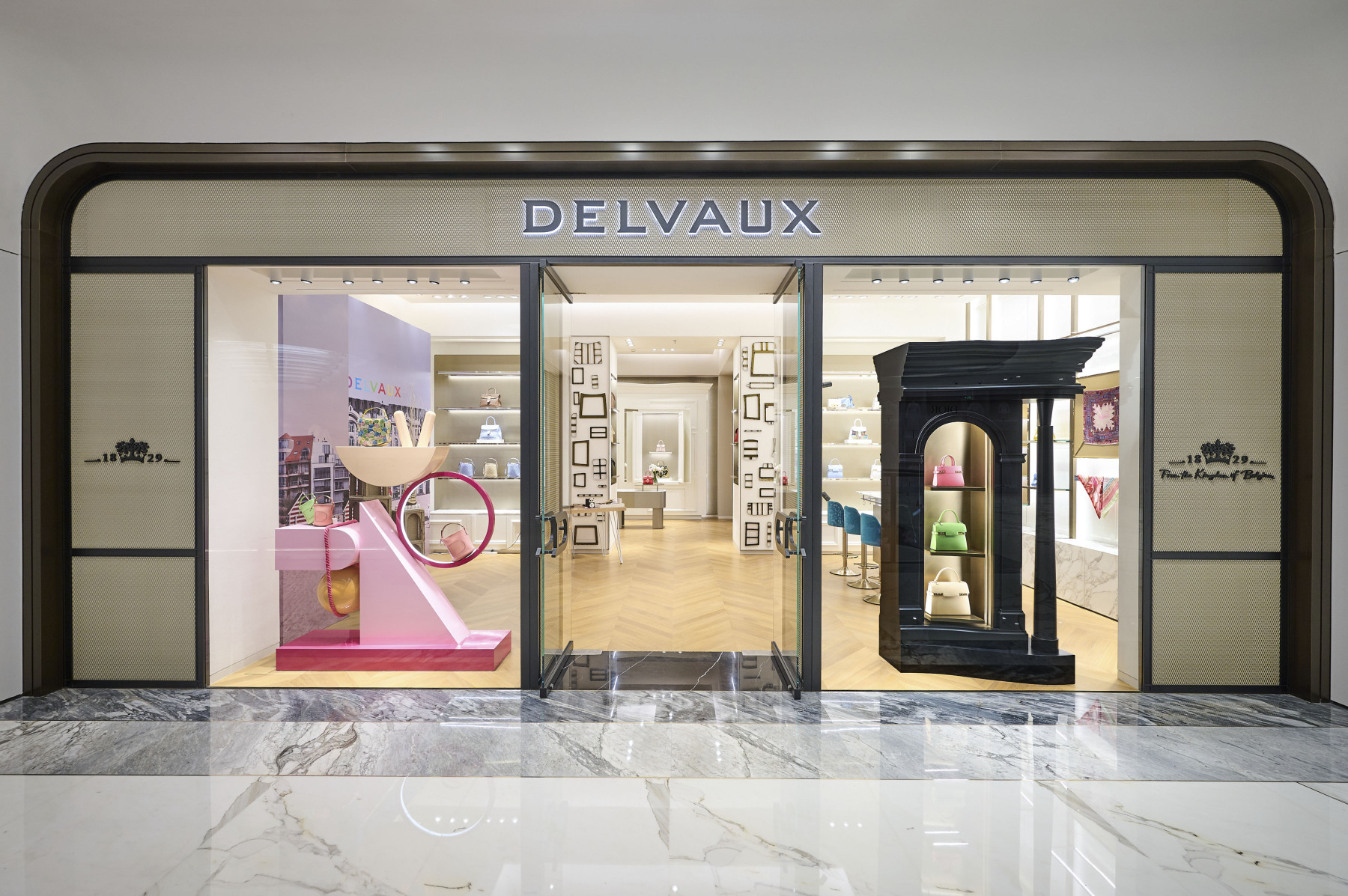
Delvaux boutique store at SKP Chengdu.
In China, Delvaux also took an important step in digitization by officially entering JD.com in March 2020, opening its first official online flagship store in the brand’s history.
At the same time, Delvaux started exploring local Chinese culture from the brand’s perspective, interpreting the understanding and recognition of culture through promotional videos, offline events, exhibitions, and other forms to resonate with Chinese consumers spiritually.
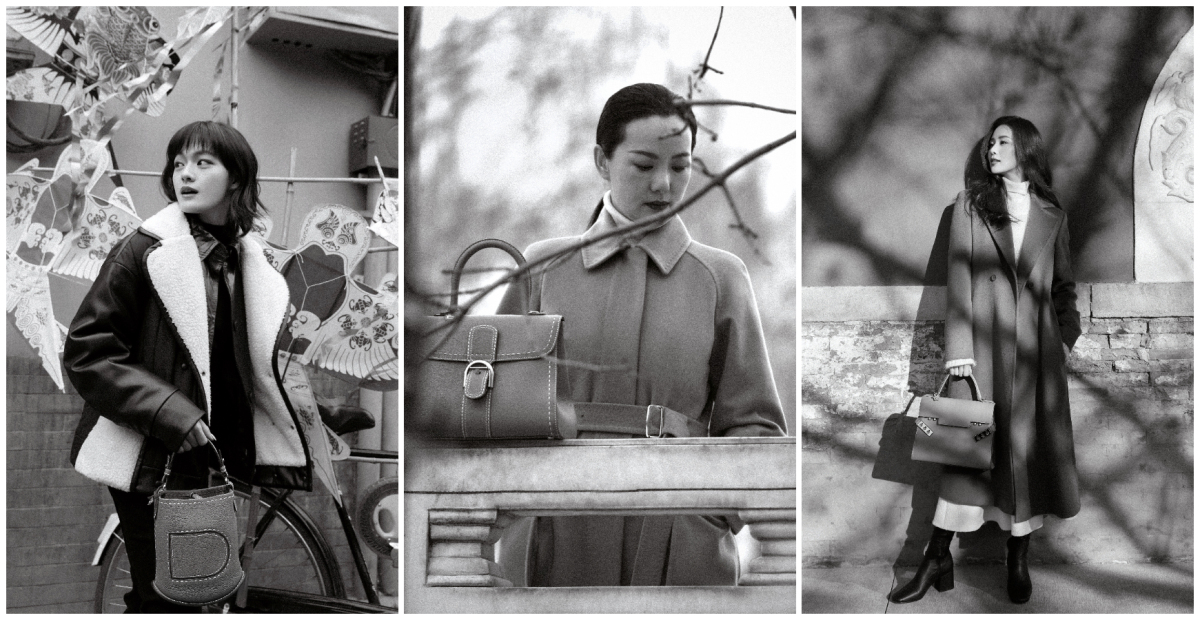
In early 2022, Delvaux released its first short film in the Asia-Pacific region, “Delvaux Beijing Stories,” using visual language to depict the spiritual charm of Beijing and its alignment with the brand’s unique qualities.
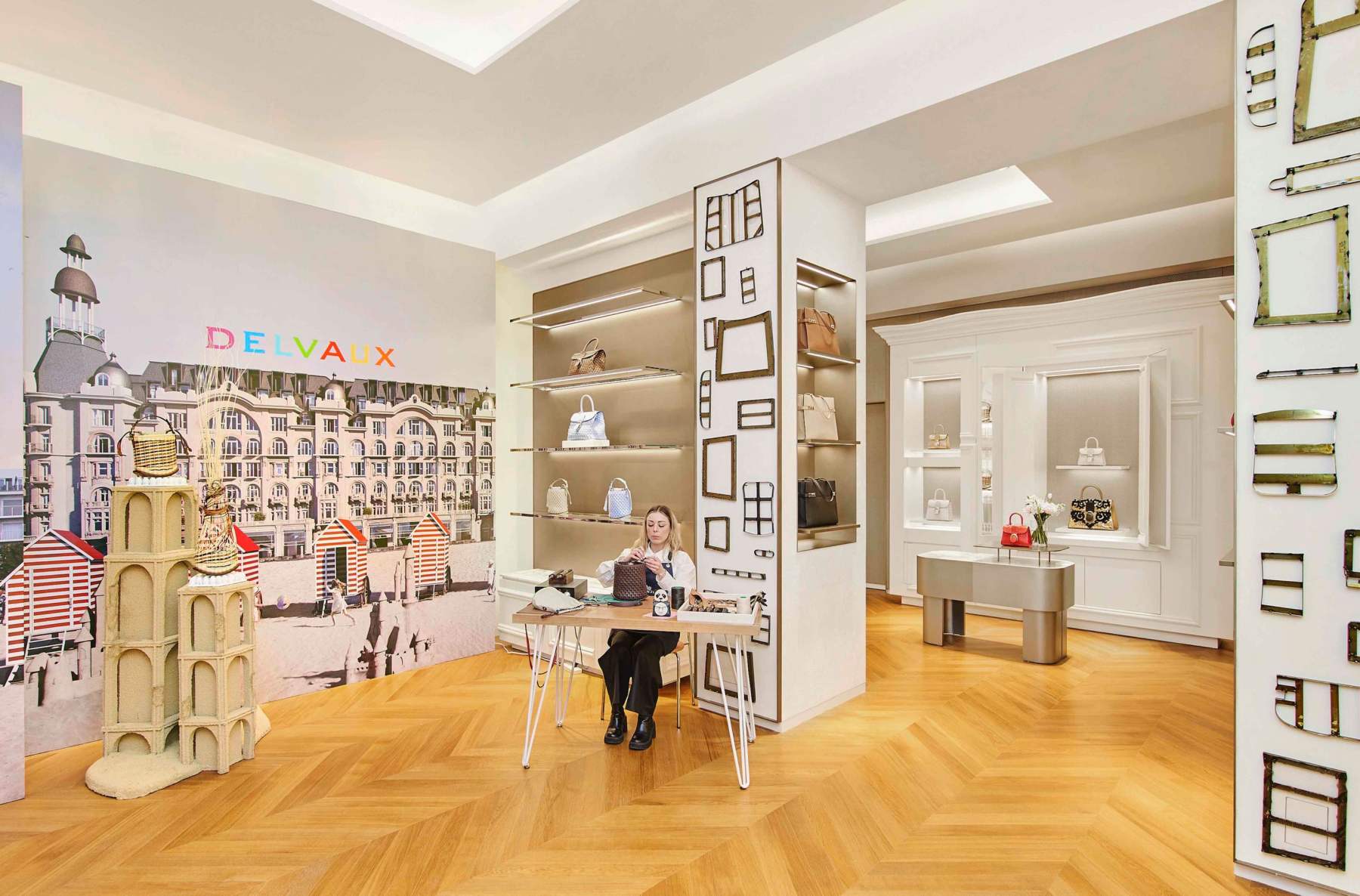
In mid-April of this year, Delvaux held an event at the Chengdu SKP boutique store, where Belgian craftsmen demonstrated the brand’s leather-making craftsmanship. During the event, a forum was held in the historical Chinese-style courtyard building, Chengdu Temple House, discussing topics related to Chinese and Western culture, heritage, craftsmanship, etc.
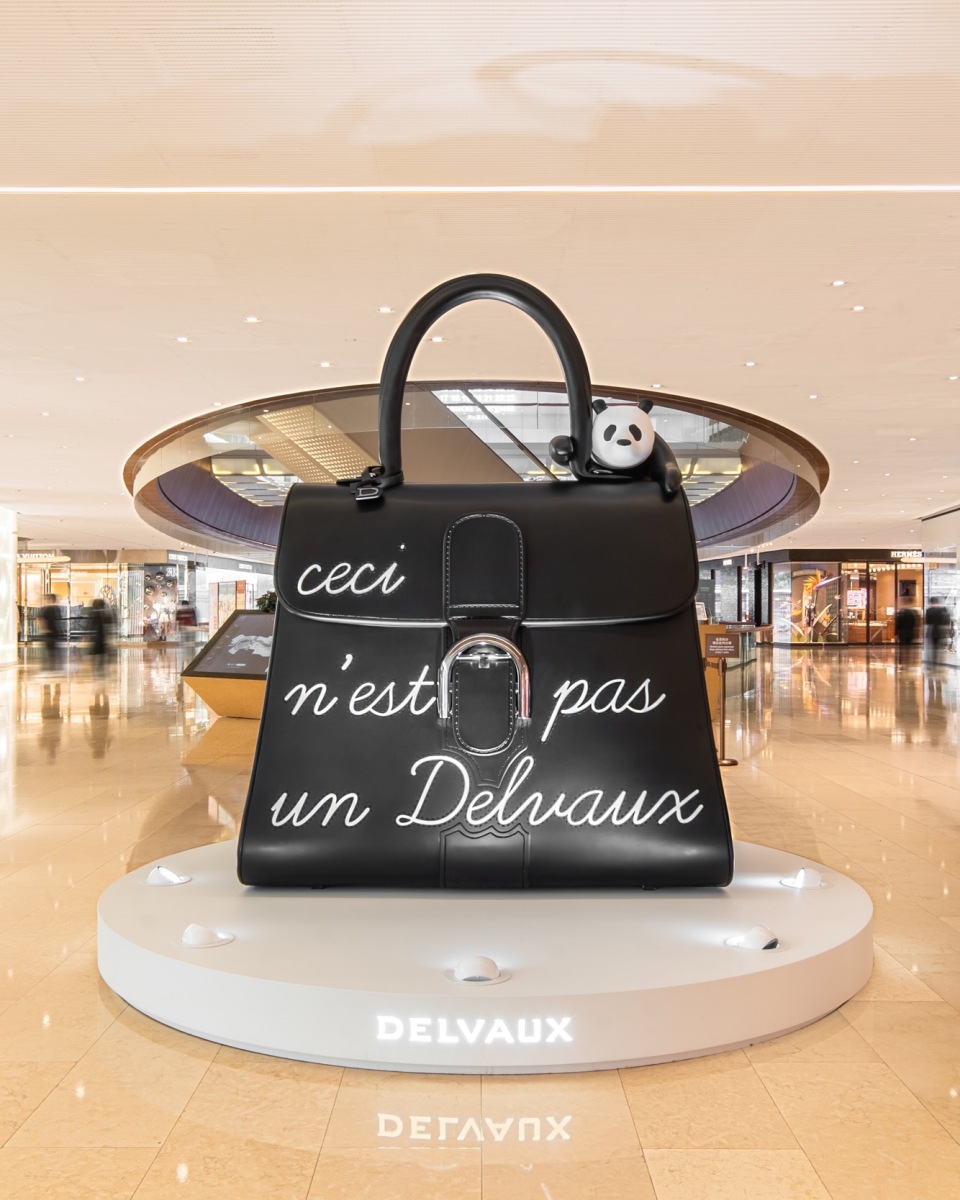
At the end of April, to celebrate the tenth anniversary of entering the Chinese market, Delvaux launched an exclusive art exhibition in China. It created the world’s first large-scale art installation combining the Brillant handbag representing Belgian artistic heritage with the adorable panda image from Chinese culture, which was exhibited at Taikoo Hui in Guangzhou and Luohu MIXC in Shenzhen.
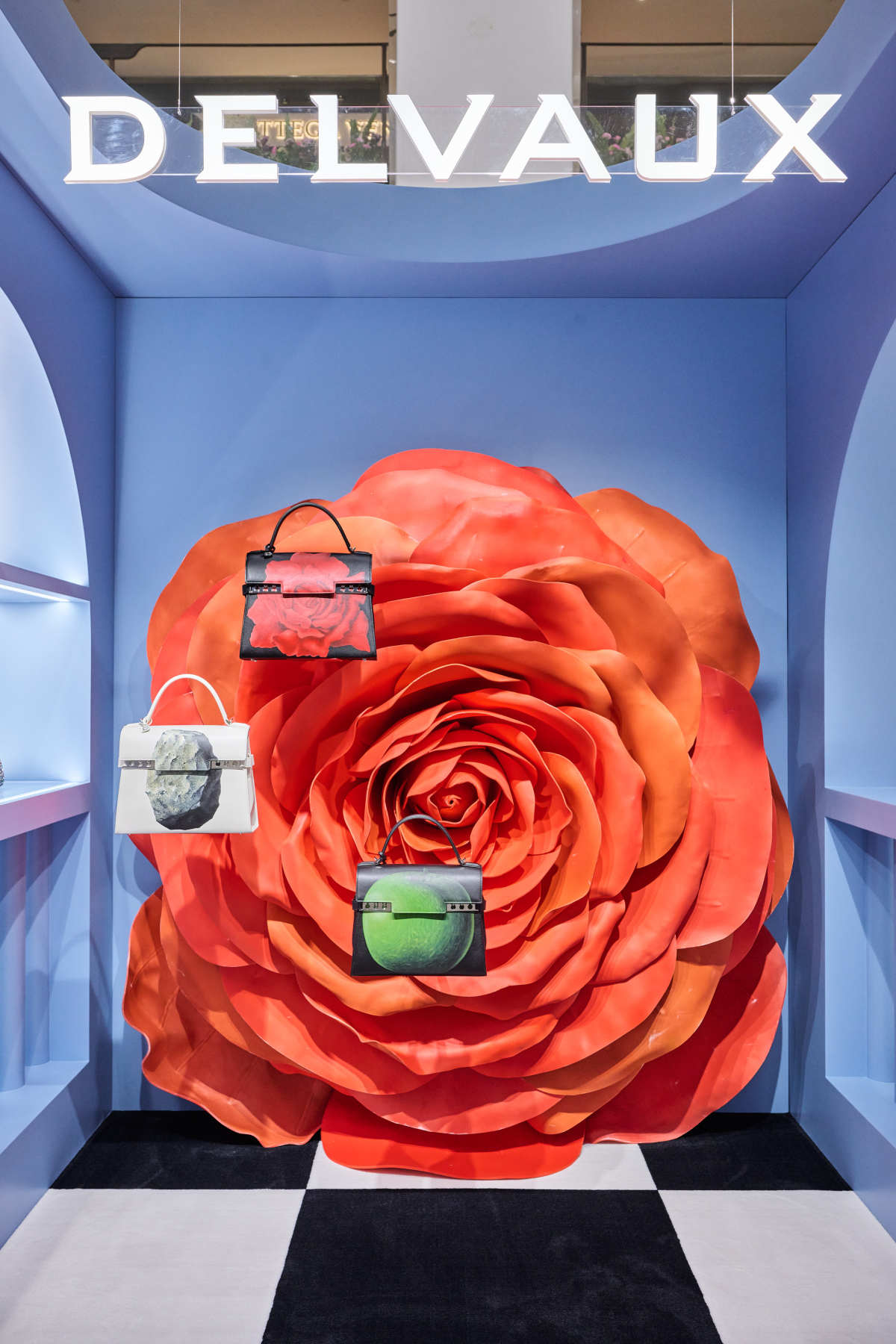
On July 29th of this year, Delvaux hosted an immersive interactive art exhibition at Beijing SKP to pay tribute to Belgian artist René Magritte on his 125th birth anniversary. During the event, four limited-edition handbags were jointly created with the Magritte Foundation.
Interview Transcript:
Luxe.CO: How do you view Chinese consumers? What do you need to pay attention to when promoting the brand in the Chinese market?
Jean-Marc Loubier: Chinese consumers have changed a lot compared to thirty years ago. During this time, some brands have had many powerful communications with consumers, but even so, the feelings they want to convey can become blurred due to a wide audience.
But this doesn’t mean that brands should stand still; on the contrary, you need to ignore some proposals to make sure you make the right choices.
At Delvaux, we hope that customers purchase products out of genuine interest, not because we use some sales strategies. Therefore, how to maintain long-term connections with the consumers we talk to is something we have always been thinking about.
Luxe.CO: What is the profile of Delvaux’s consumers in China?
Jean-Marc Loubier: In China, our core customers are elites or pioneers. They have strong curiosity and self-confidence, are not satisfied with following trends, and have their own time and way of choosing products.
Chinese customers are relatively young, and among them, some have just started to explore luxury goods, while many have bought many big brands but still crave freshness.
Luxe.CO: What kind of brand can succeed in the Chinese market?
Jean-Marc Loubier: Practices summarized based on existing experience are not reliable. You can’t just copy what you have done elsewhere to a new market. Instead, you need to constantly experiment and discover the reasons behind the development trends. If you only give people what they expect, they will soon no longer need you.
Luxe.CO: In the next decade, what kind of development stage do you hope to lead Delvaux into?
Jean-Marc Loubier: Delvaux will continue to grow and have infinite possibilities. We hope she will have her own way of growth instead of imitating other brands. In the future, she will become more distinct and desirable.
Conclusion
During the ten years in China, Delvaux witnessed the rapid growth of the Chinese luxury goods market and the evolution of Chinese consumers.
With the increasing proportion of highly educated individuals, Chinese luxury consumers have become more refined, their aesthetics have upgraded, and they have become more individualistic. Besides focusing on the external attributes of products, they pay more attention to the core of the brand, eager to explore the stories behind the brand, which puts higher demands on brand content construction.
In the past decade, while Delvaux has been expanding its retail network in China, it has also been continuously exploring and strengthening its local cultural narratives, slowly telling its brand story. As a result, people have taken notice and fallen in love with this treasure brand that constantly brings fresh sensations.
In the next decade, in the China luxury goods market full of endless opportunities, Delvaux will continue to establish a deeper emotional connection with the new generation of consumers in its unique way and language. We also look forward to the endless possibilities it will create in the future.
| Image Credit: Provided by Delvaux
| Editor: Zhu Ruoyu

